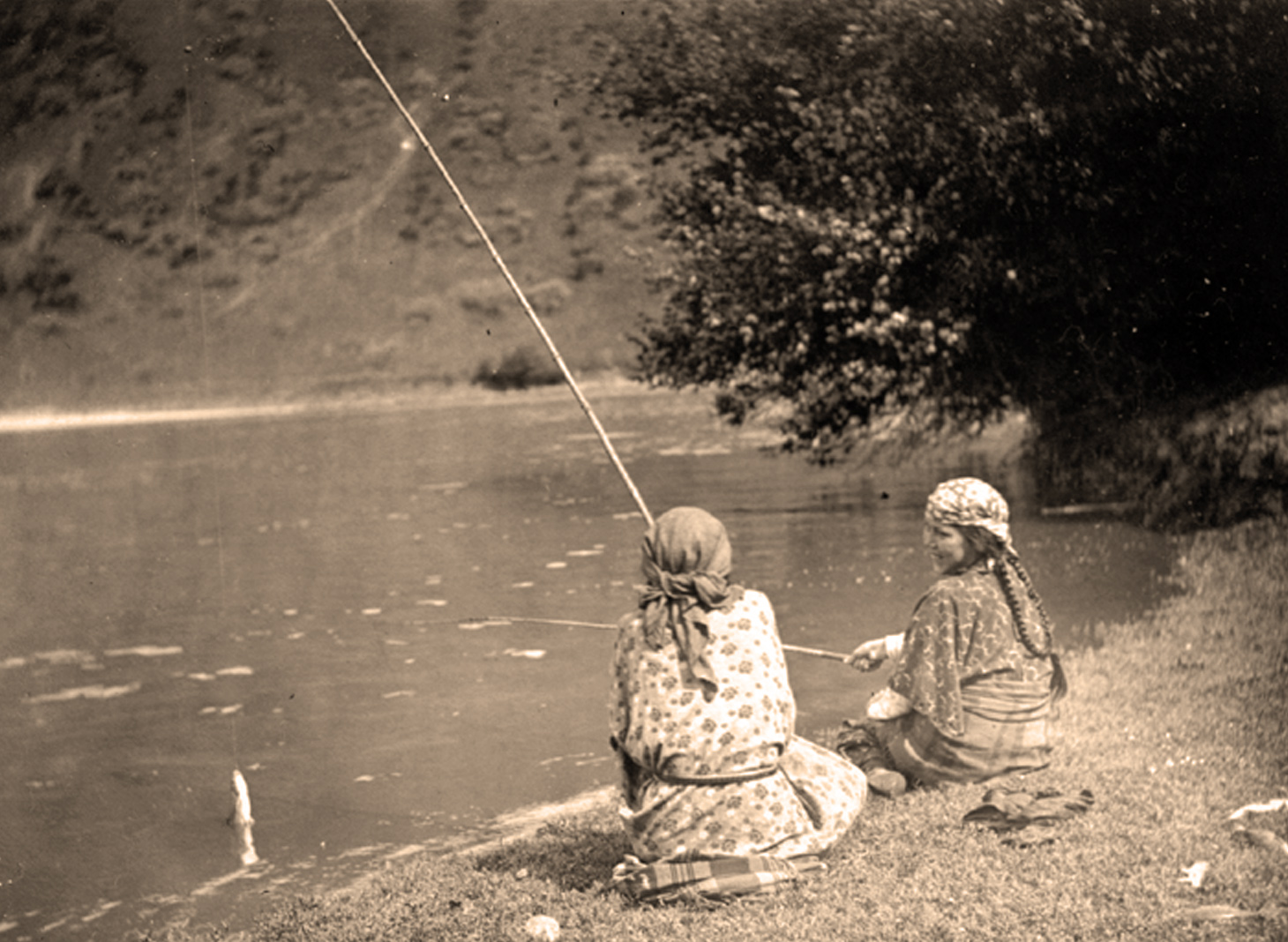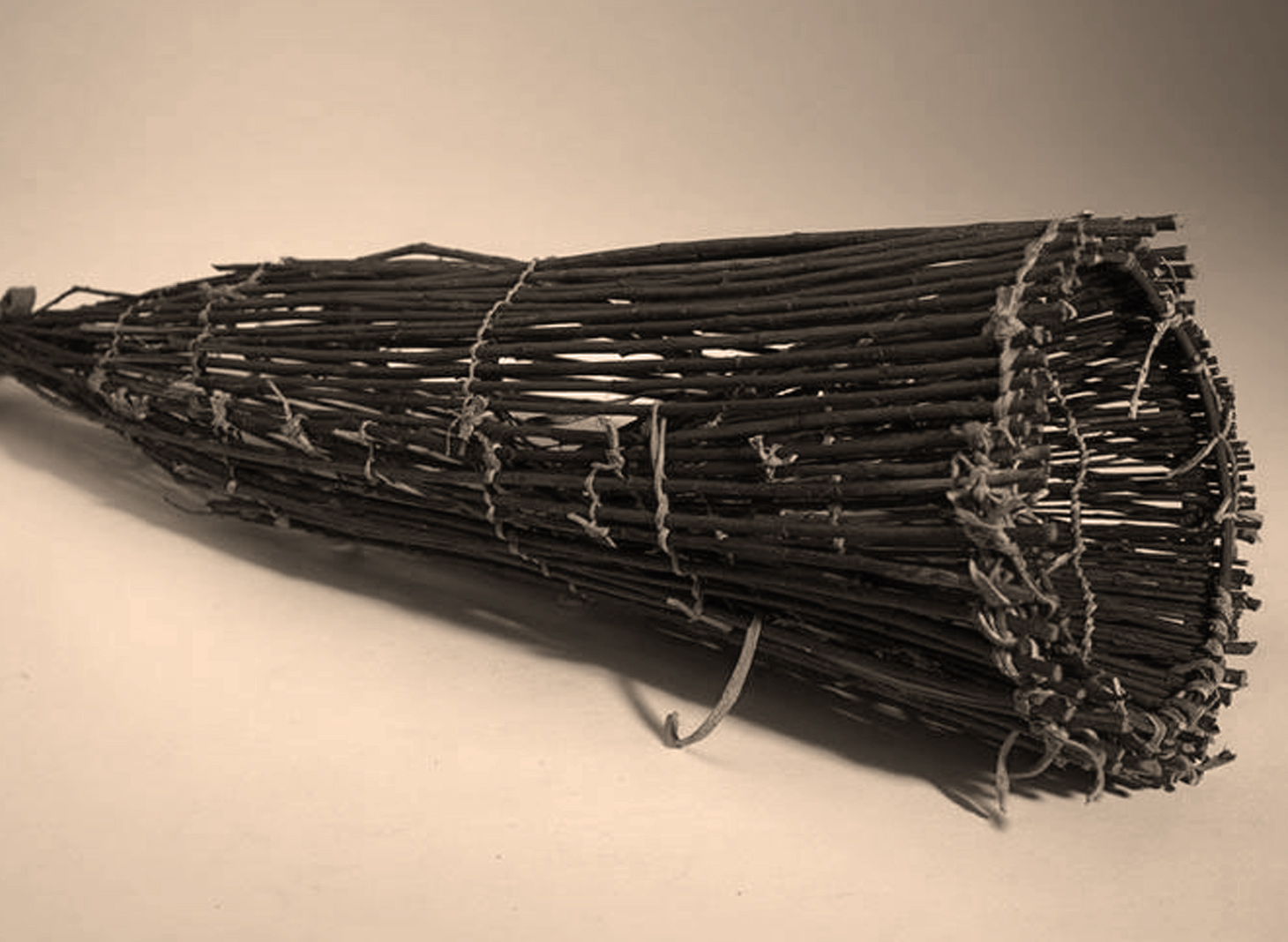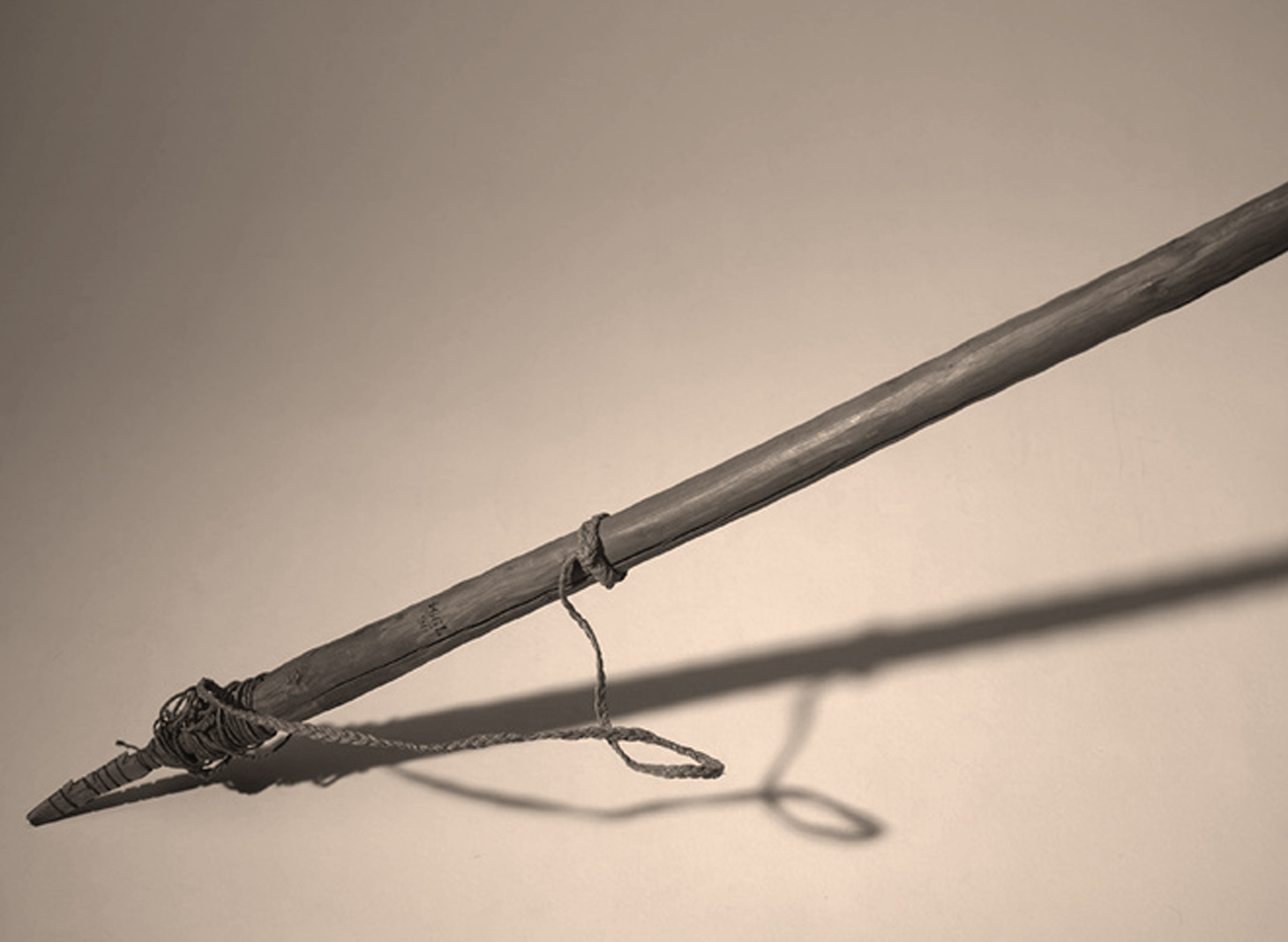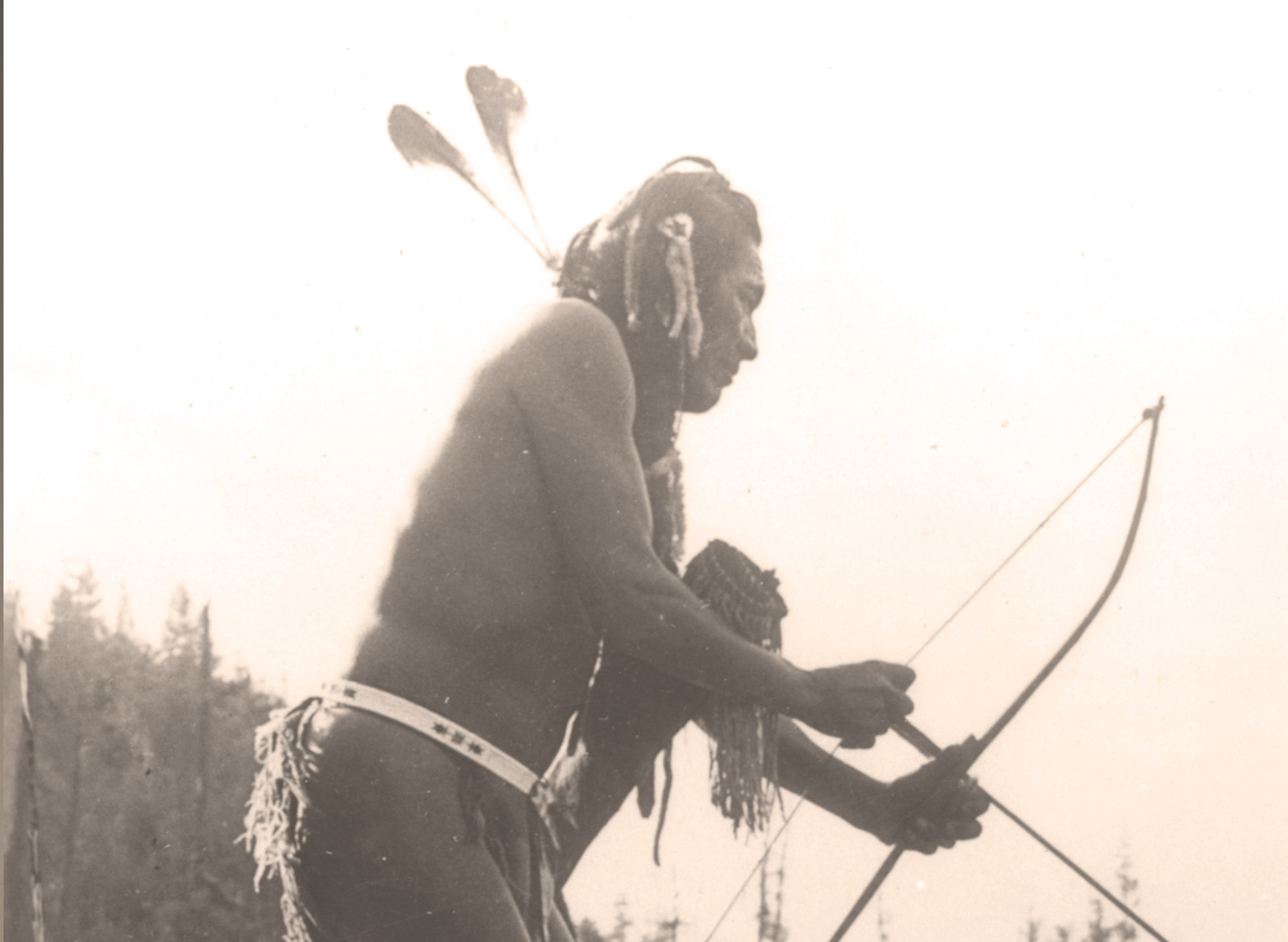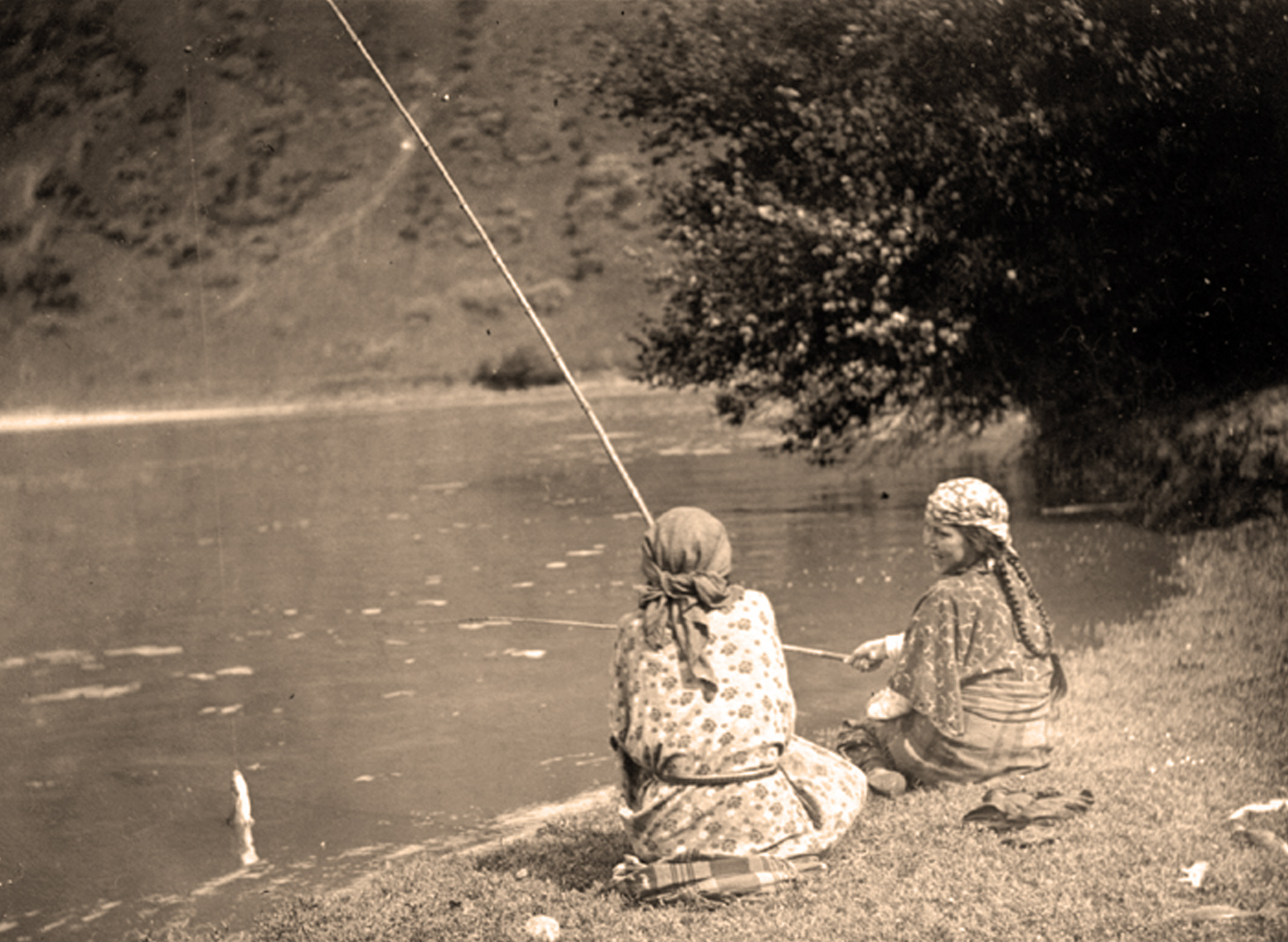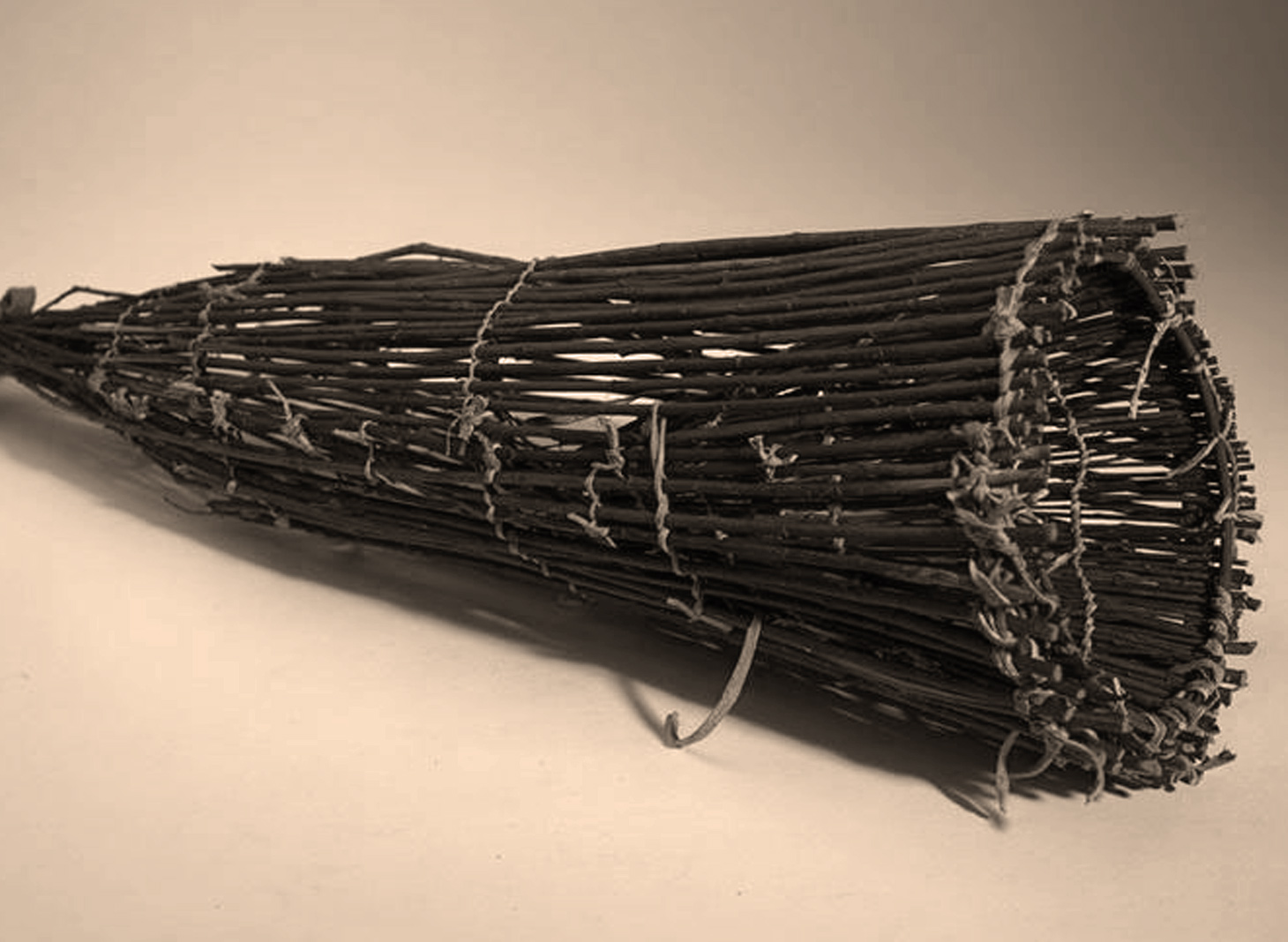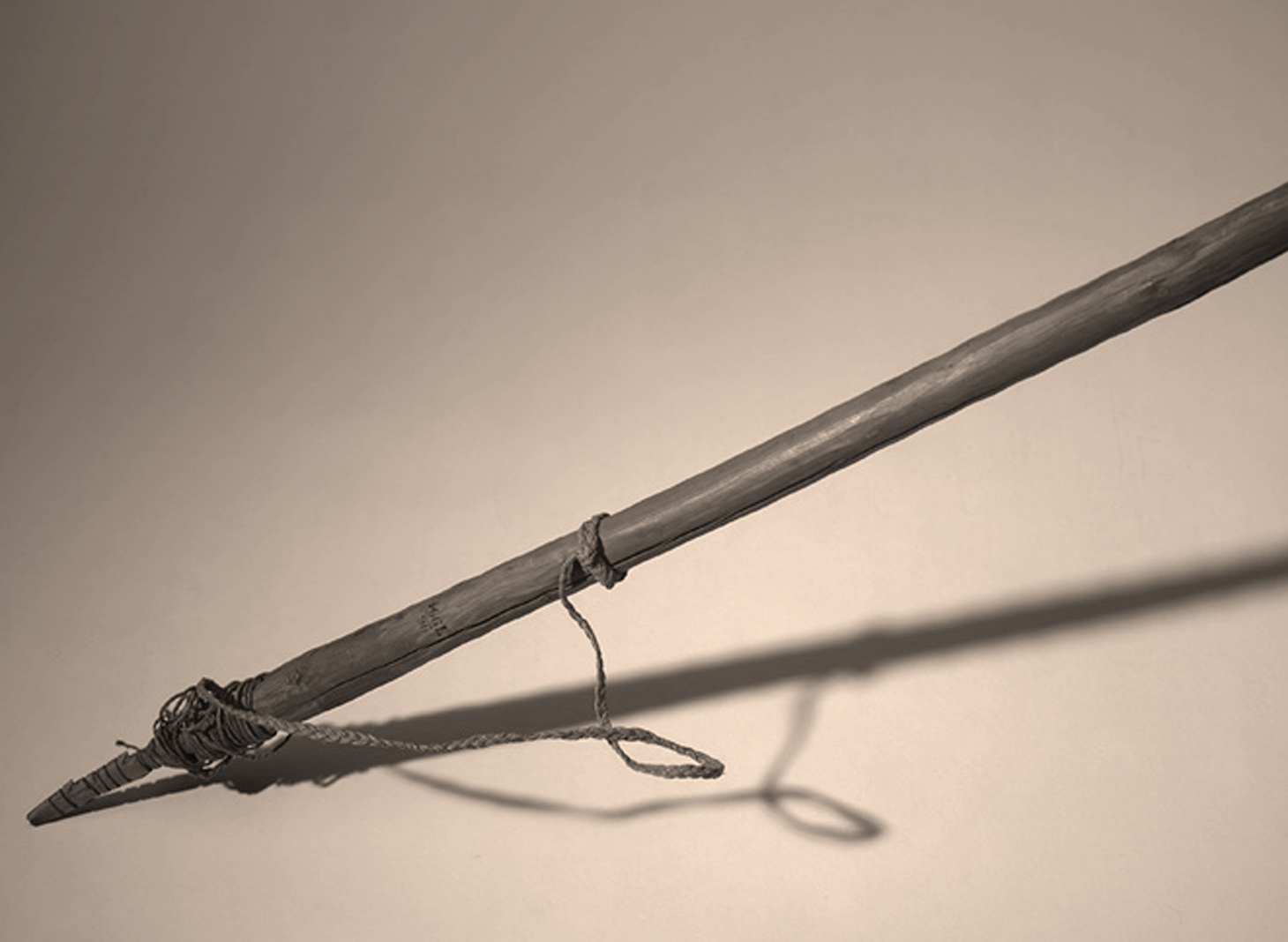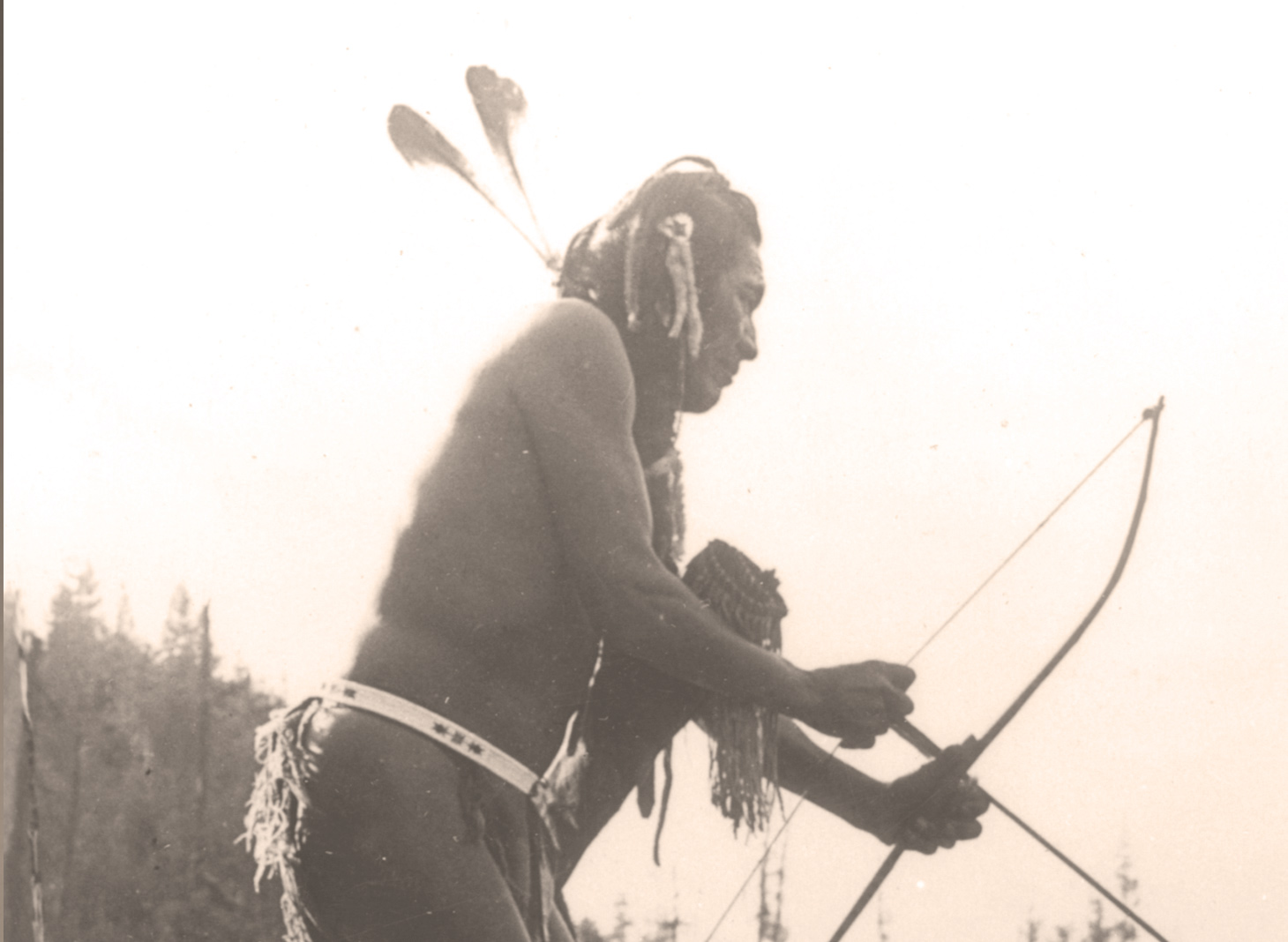Fish were an important source of protein to the Salish, Pend d’Oreille, and Kootenai. They knew, in great detail, the habits, life cycle, and seasonal patterns of the fish and used this knowledge to harvest them whenever needed. They caught fish a number of ways: with dip nets, spears, hooks made of bones and thorns, fish traps, weirs, trenches, snares, and bows and arrows. Sometimes they used torches to attract fish during night fishing. They carried their catches back to camp in bags made of tulles or in baskets, and they built large racks to dry them. They also boiled, baked, fried, and roasted them.
Learn More
Fishing: A Gallery of Traditional Tools
Fish were an important source of protein to the Salish, Pend d’Oreille, and Kootenai. They knew, in great detail, the habits, life cycle, and seasonal patterns of the fish and used this knowledge to harvest them whenever needed. They caught fish a number of ways: with dip nets, spears, hooks made of bones and thorns, fish traps, weirs, trenches, snares, and bows and arrows. Sometimes they used torches to attract fish during night fishing. They carried their catches back to camp in bags made of tulles or in baskets, and they built large racks to dry them. They also boiled, baked, fried, and roasted them.
Learn More
Fishing: A Gallery of Traditional Tools
Fish were an important source of protein to the Salish, Pend d’Oreille, and Kootenai. They knew, in great detail, the habits, life cycle, and seasonal patterns of the fish and used this knowledge to harvest them whenever needed. They caught fish a number of ways: with dip nets, spears, hooks made of bones and thorns, fish traps, weirs, trenches, snares, and bows and arrows. Sometimes they used torches to attract fish during night fishing. They carried their catches back to camp in bags made of tulles or in baskets, and they built large racks to dry them. They also boiled, baked, fried, and roasted them.
Learn More
